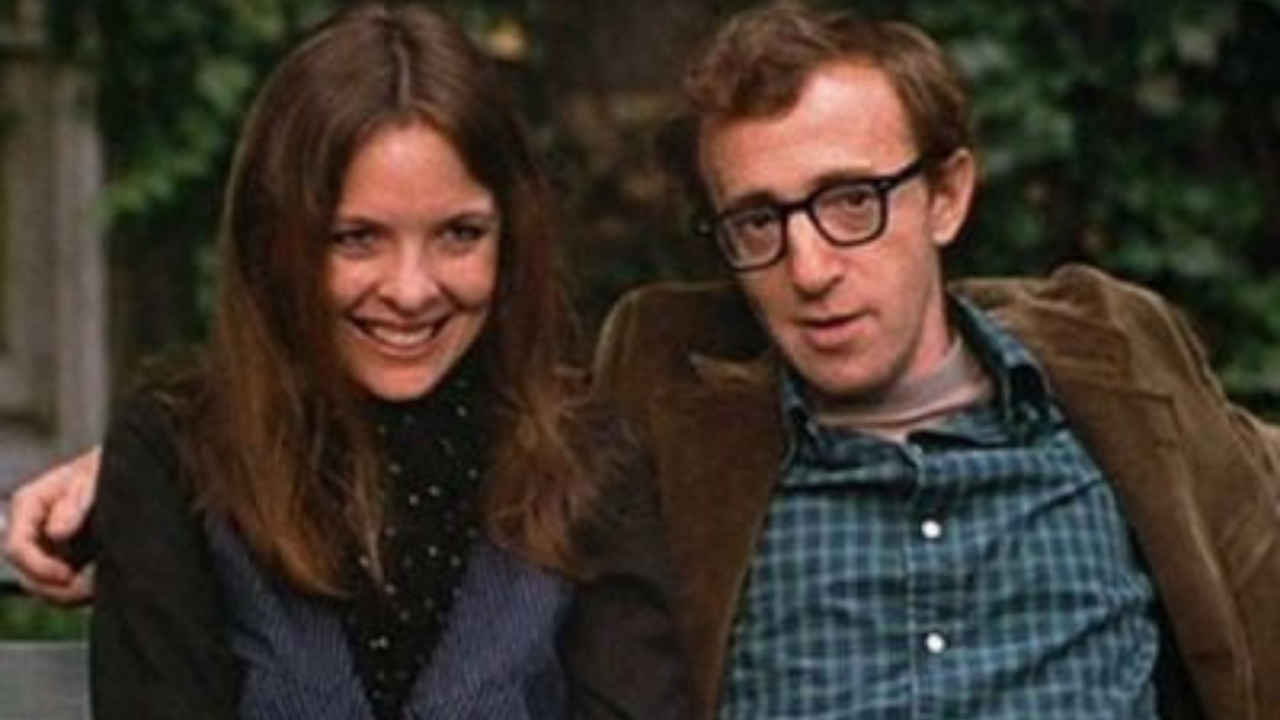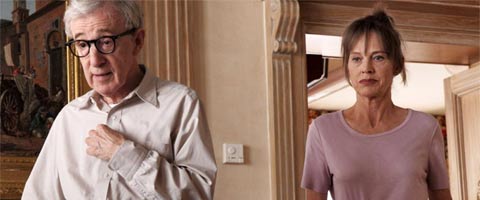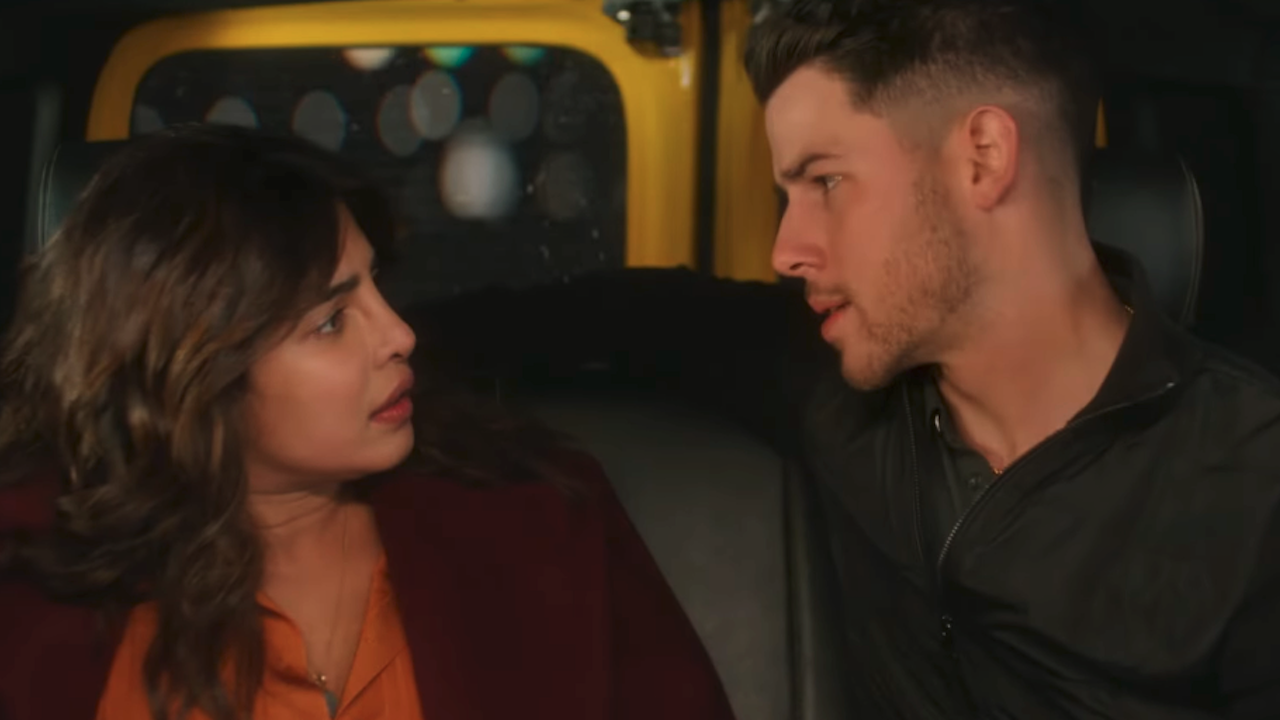Woody Allen Explains Why Annie Hall And Hannah And Her Sisters Were Disappointments

Your Daily Blend of Entertainment News
You are now subscribed
Your newsletter sign-up was successful
Woody Allen is, in a word, a legend. Since 1966 he has made more than 40 films, some of them considered among the greatest of all time, including Annie Hall and Hannah and Her Sisters. But how Allen look back on those great titles? With disappointment.
I recently attended a press conference in Los Angeles to promote Allen’s latest film, To Rome With Love where the famed director talked not only about his reflections on his own work, but also his approach to directing actors, the use of music in his movies, and whether or not he could ever see himself retiring.
It’s been a long time since we have seen you in front of the camera. Why did you decide you wanted to be in this particular film?
Only because there was a part for me. When I write a script, if there is a part for me, then I play it. If there is no part, [then I’m not in it]. As I’ve gotten older, the parts have diminished. I liked it when I was younger, I could always play the lead in the movie and I could do all the romantic scenes with the women, and it was fun and I liked to play that. Now, I’m older and I’m reduced to playing the backstage doorman or the uncle, or something, and I don’t really love that. Occasionally, when a part comes up, I’ll play it.
You once said that you had a drawer that you pulled out and looked at all the ideas and said, “This is a good one.” Was this one of the ideas that you had in your drawer?
Yes. I have a lot of notes. Ideas come to me, in the course of a year, and I write them down and throw them into a drawer in my house. And then, I go and look at them, and many of them seem very unfunny and foolish to me, and I can’t imagine what I was thinking when I originally did it. But sometimes, there will be a little note written on a matchbook or a piece of paper that says, for example, “A man who can only sing in the shower,” and it will occur to me, at the time, that it could make a funny story. That is what happened with this. There were some ideas in this movie that did come out of the notes that I had given myself, over the year.
You have made some beautiful films, both here and in Europe. What was the inspiration for To Rome with Love? What was it about Rome that appealed to you for the setting for this film?
Your Daily Blend of Entertainment News
Well, there are two things. I had been talking about making a film in Rome for years, with the people in Rome who distribute my films. They always said, “Come and make a film.” And finally, they said, “Come and do it. We have been talking about it for a long time. We’ll put up all the money necessary to make the film.” And I jumped at the chance because I wanted to work in Rome and it was an opportunity to get the money to work quickly and from a single source. So, it came together like that.
So much of this film is a meditation on fame and accomplishment. What might have sparked the idea to focus the movie around that?
The fact that some of the film deals with that theme is post facto. I didn’t think about that when I made the film. I thought, “It’s a funny idea that the guy sings in the shower. It’s a funny idea that a guy wakes up one day and suddenly he is famous and doesn’t really know why. And two young people come to Rome and they’re just married, and they get involved in the situation.” I’d never thought of any thematic connection, in any way. That’s all just an accident. It may have been something that was on my unconscious, at the time, and it came out in some strange way. I, myself, feel about fame the way the chauffeur talks about it in the movie. Life is tough, whether you’re famous or whether you’re not famous. In the end, it’s probably, of those two choices, better to be famous ‘cause the perks are better. You get better seats at the basketball game, and you get better tables and reservations at places. If I call a doctor on Saturday morning, I can get him. There’s a lot of indulgences that you don’t get, if you’re not famous. I’m not saying it’s fair. It’s kind of disgusting. But, I can’t say that I don’t enjoy it. There are drawbacks to being famous, too, but you can live with those. They’re not life-threatening. If the paparazzi are outside your restaurant or your house – and actors make such a big thing of it and scurry into cars and drape things over themselves – you think they’re going to be crucified or something. It’s not a big deal. You can get used to that. It’s not so terrible. The bad stuff is greatly outweighed by the dinner reservations.

In addition to being an accomplished filmmaker, you’re also quite an accomplished musician. Can you talk about the importance of music in your films?
I’m a big believer in music in movies. It covers a multitude of sins. Now, a really great director, like Ingmar Bergman, did not believe in music in films. He thought the use of music in films was barbaric. That was his word. His films are great enough, so that he doesn’t need any outside help. I need help. I noticed, right from the first movie I ever made in my life, Take the Money and Run, there were scenes in it that were just dying when I looked at it them in the cutting room. The editor said, “Put a piece of music behind it. Let me just put this record on.” He put a record on and, all of a sudden, when I was doing something that was so boring, originally, it came to life. Doing it to music just made the whole thing work. Ever since, I’ve been a big believer in supporting the action on film with the appropriate music. It’s gotten me out of a lot of jams, over the years. So, music for me is a very big thing in films and I use it unashamedly. I have used all the classics and all the great composers. It’s the most pleasurable part of a movie, too. When you have a movie and you look at it and it’s ice cold with no music, and then you start dropping in a little George Gershwin and a little Mozart, things suddenly become lively and magical in front of you. It’s a great feeling.
In the film, Alec Baldwin’s character takes a trip down memory lane. If you could go back, what would you tell your younger self?
Don’t do that! I would like to go back in time, but just for lunch. I would not like to live in the past because there are all those drawbacks, as I mentioned in my other movie, Midnight in Paris. You don’t get anesthetic when you go to the dentist. You don’t get antibiotics. You don’t get the things that you are used to now, like cell phones and televisions and things that are very convenient. It takes all year for the ambulance to come. You don’t want that. But, it would be fun if you could, just every now and then, meet a friend for lunch in Paris in 1900, or go back to 1870 for a couple of hours and take a walk in the park, and then come right back to Broadway.
You’ve always been known to let your actors play with their lines. Why is that?
I have great faith in the actors. When they improvise, it always sounds better than the stuff I write in my bedroom. I don’t know what’s going on, all alone and isolated in New York. When you get onto the set, it feels different to the actors. When they improvise, they make it sound alive.

The film includes so much slapstick humor and sight gags and, in that regard, it feels like a throwback to some of your earlier films. What inspired you to return to that approach to comedy, at this point in your career?
The stories in this picture require, in the telling of those stories, a certain amount of that broader, slapstick comedy. Not much of it, but a certain amount of it was required. You couldn’t tell the story properly without doing that, so I had to do it. I didn’t mind. It’s fun. I like broad comedy. If I had an idea tomorrow for a film that was all slapstick and broad comedy, and it was an idea that interested me, I wouldn’t hesitate to do it. I enjoy watching those kinds of film, too.
You’ve really mastered the art and study of relationships throughout all your films, over the years. What is the greatest lesson you’ve learned about love?
When it comes to the important things in life, you never learn anything. You can learn about technological things and you can learn about specific things, but the real problems that people deal with, in any subject, whether it’s existential subjects or romantic subjects, is that you never learn anything. You make a fool of yourself when you’re 20, and you make a fool of yourself at 40, at 60 and at 80. The ancient Greeks were dealing with these problems. They screwed up all the time, and people do now. All over the world, relationships between men and women are very, very tricky and very difficult. You don’t learn anything. It’s not an exact science, so you can’t learn anything. You’re always going by instinct and your instinct betrays you because you want what you want, when you want it. It’s very tough. Most relationships don’t work out, and don’t last long when they do work out. When you see one that’s really lovely, it’s a rarity. It’s great that two people, with all their complex exquisite needs, have found each other and all the wires go into the right places. I’ve learned nothing. I have years and years of failure. I have nothing to say. I have no wisdom.
In this film, your character equates retirement with death. Is that how you feel, or do you see a time when you will step away from the camera?
Retirement is a very subjective thing. There are guys I know who retire and are very happy. They travel all over the world, they go fishing, they play with their grandchildren, and they never miss work, at all. And then there are other people, and I am one of that kind, that like to work all the time. I just like it. I can’t see myself retiring and fondling a dog somewhere. I like to get up and work. I have too much energy, or too much nervous anxiety. So, I don’t see myself retiring. Maybe I will suddenly get a stroke or a heart attack and I will be forced to retire, but if my health holds out, I don’t expect to retire. But, the money could run out. Sooner or later, the guys that back the films could get wise and say, “This is not really worth all the suffering,” and then stop giving me the money. But, I still wouldn’t retire, I don’t think. I think I would just go write for the theater or write books.

With all the films that you’ve directed, produced, written and starred in, and all the nominations and awards you’ve received, is there one film that’s the most memorable for you?
When you make the film, it’s like a chef who works on the meal. After you’re working all day in the kitchen, dicing and cutting and putting the sauces on, you don’t want to eat it. That’s how I always feel about the films. I work on it for a year. I’ve written it, I’ve worked with the actors, I’ve edited it and put the music in, and I just never want to see it again. When I begin a film, I always think that I’m going to make The Bicycle Thief or Grand Illusion or Citizen Kane, and I’m convinced that it’s going to be the greatest thing to ever hit celluloid. And then, when I see what I’ve done afterward, I pray that it’s not an embarrassment to me. I’ve never been satisfied or even pleased with a film that I’ve done. I make them, but I’ve never looked at one after. I made my first film in 1968, and I’ve never seen it since. I just cringe when I see them. I don’t like them ‘cause there’s a big gap between what you conceive in your mind when you’re writing and having to meet the test of reality. You write and it’s funny and beautiful and romantic and dramatic, and then you have to show up on a cold morning, and the actors are there and you’re there, and you don’t have enough of this and this goes wrong and you make the wrong choice on something and you screw up here. When you see what you get the next day, you can’t go back. There’s such a difference between the idealized film in your mind and what you wind up with that you’re never happy and you’re never satisfied. For me, I’ve never liked any of my films. I’m always thankful that the audience has liked some of them, in spite of my disappointment.
You even feel that way about Annie Hall?
When Annie Hall started out, that film was not supposed to be what I wound up with. The film was supposed to be what happens in a guy’s mind, and you were supposed to see a stream of consciousness that was mine, and I did the film and it was completely incoherent. Nobody understood anything that went on. The relationship between myself and Diane Keaton was all anyone cared about. That was not what I cared about. That was one small part of another big canvas that I had. In the end, I had to reduce the film to just me and Diane Keaton, and that relationship, so I was quite disappointed in that movie, as I was with other films of mine that were very popular. Hannah and Her Sisters was a big disappointed because I had to compromise my original intention tremendously to survive with the film. So, you’re asking the wrong person. You see the film and you draw your conclusion from it. To me, it’s always less than the masterpiece I had been certain I was destined to make.
This film explores fantasy and things that you, in your wildest dreams, would never expect to happen to you. Was fantasy something you thought about when you were writing this film?
You’re able to do that in film. Real life is generally much duller and inevitably sadder, most of the time. In film, you control everything that’s going on, so you can indulge the most fantastic, romantic, escapist feelings and fantasies. You can do anything you want. That’s why it’s very seductive and pleasurable to earn your living making movies. You’re not living in the real world. You wake up in the morning and you go to work surrounded by [beautiful women] and scintillating guys that are handsome, witty and gifted, and you make up stories and everyone has costumes and the music is beautiful. You live your life not in the real world, and you create something that’s completely escapist. It’s great, but it’s not real. It is fun to do. The only place you can do it is in fiction.

Eric Eisenberg is the Assistant Managing Editor at CinemaBlend. After graduating Boston University and earning a bachelor’s degree in journalism, he took a part-time job as a staff writer for CinemaBlend, and after six months was offered the opportunity to move to Los Angeles and take on a newly created West Coast Editor position. Over a decade later, he's continuing to advance his interests and expertise. In addition to conducting filmmaker interviews and contributing to the news and feature content of the site, Eric also oversees the Movie Reviews section, writes the the weekend box office report (published Sundays), and is the site's resident Stephen King expert. He has two King-related columns.
